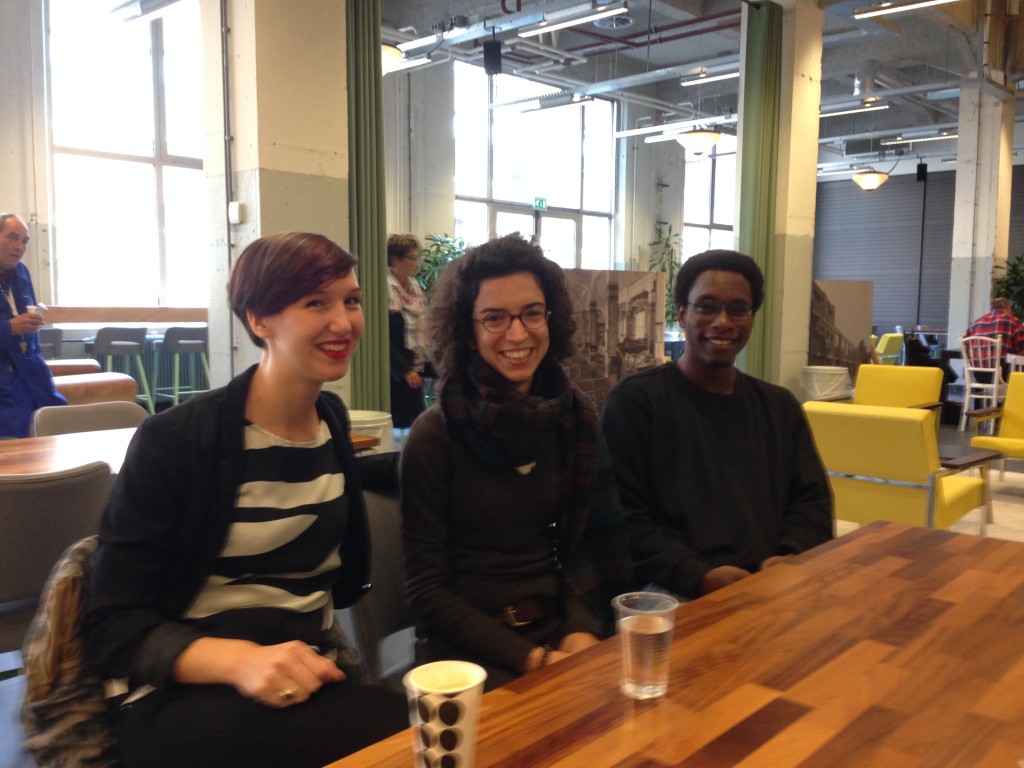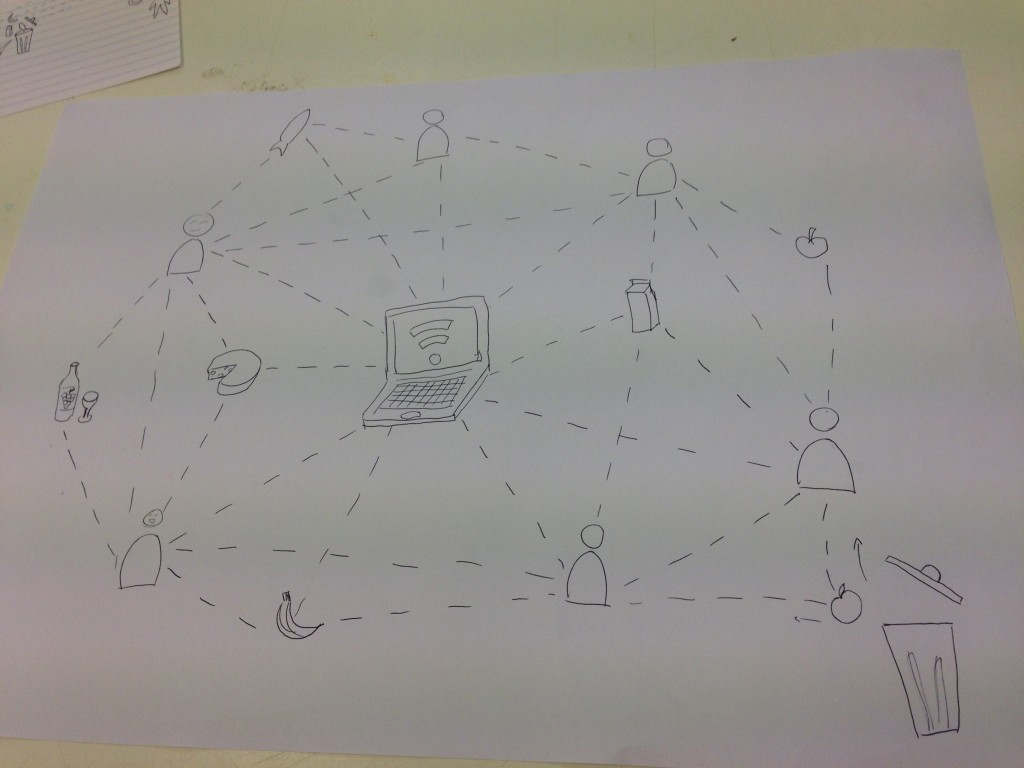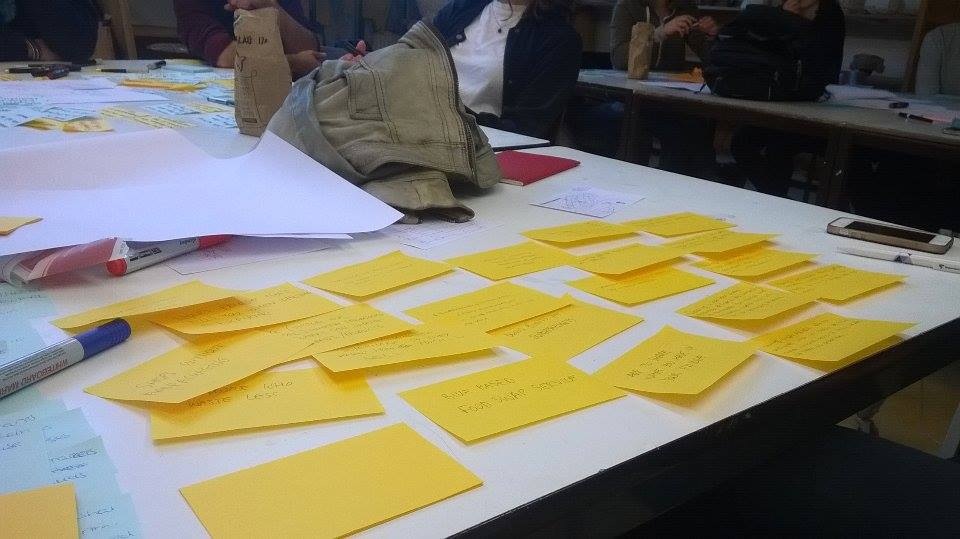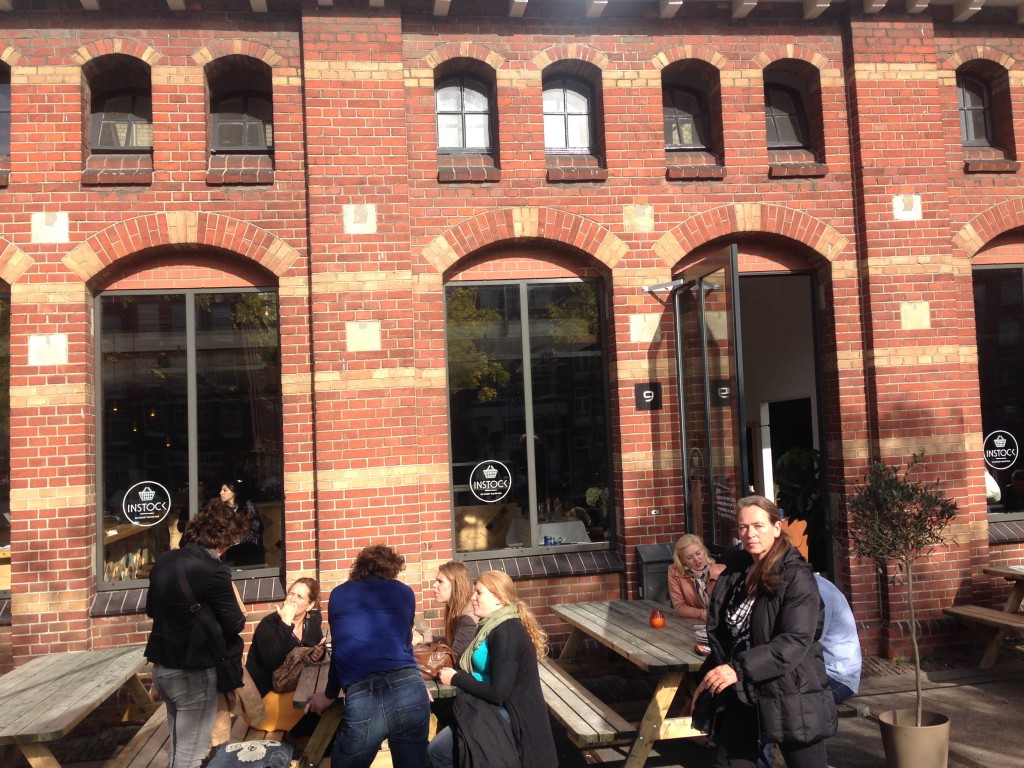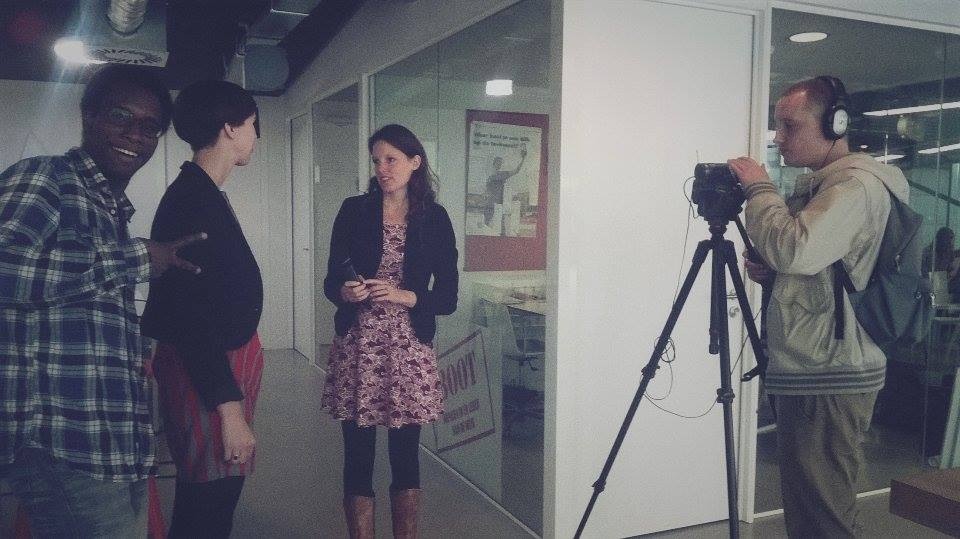Looking at the causes of food waste we concluded that there were 4 big ones: uncertainty, attitude, market mechanisms and policy. During the Translate session we decided to focus on uncertainty as it turned out to occur at every part of the food cycle. We also saw it as one of the causes we could best do something about by using sensors and measuring.
Next to that we decided to focus on local production as we believe it provides more transparency by having to food cycle on a smaller scale, and because it gives us more opportunity to have an impact as the whole cycle is within our reach.After a month we finally managed to meet up with the municipality of Amsterdam. We met up with two people, Frank Bakkum, a city planner, and Mara van der Kleij who is working on sustainability.
For this year they had listed priorities they were working on, including food education, encouraging local production initiatives, and developing a Voedsel Informatie Punt (VIP) or food information point. This last concept sounded very interesting to us, as it would not only provide information on food and expiry dates, but also function as a communication point for consumers, producers and retailers.
Next we generated solutions to this problem statement. One way in which we did this was thinking of ways how we could make the problem worse, and then taking the opposite as a possible solution. In this way we generated many ideas which we will definitely review in the weeks ahead.
The week after that was mostly spent making presentations, and reviewing and revising them according to feedback. Luckily the work showed itself in the results we got, and Cisco was also pleased with the research and findings we presented, and our future focus. Here you can see the short video we showed which explains our findings of the 1st sprint, and the focus we decided to take for the 2nd sprint Summary 1st sprint and what’s next.
However, they stressed the importance of doing really thorough research and finding where the problem exactly is, to make sure our project will have an impact. They also advised us to not only map out where food is wasted in the food cycle, but also how money flows in the cycle and where both money and food could be saved. Attitude remains an important cause of food waste, and if we can find a solution that will also save money it would make it easier for us to get people and companies to cooperate and make a real impact.
The day after our meeting with Cisco we were invited to attend a conference on food waste for restaurant owners, organised by the municipality. Right after that we also had to present at a lunch on sustainability at the MediaLab. The conference was very interesting and showed that there are many interesting initiatives in Amsterdam. The conference was held in InStock, a restaurant which collects food from Albert Heijn supermarkets which are about to expire, and uses them to make the menu for the day.
There was also a presentation by Restaurant Vermeer, which tries to get their products from as close as possible, and also grows some of their own crops and herbs on the roof. Next to that there were many small initiatives being presented such as improved doggy bags and a “grow your own crops” kit called very witty the “VegeTable”. Next we had to hurry back for our presentation at the sustainable lunch, where we explained our project and showed the video we had made.
The last important meeting we had was yesterday, when we had our first retrospective, reviewing what went well in our first sprint and where we could improve. Here we concluded that our team spirit is great making us very productive, but instead of just doing desk research we really need to start making things such as prototypes and get out of the building to do some field research.
And those are our plans for the next sprint: getting out, talking to expert and people who are working in the field, and in that way trying to find a solution with which we might make a difference. Unfortunately our next sprint will only be 2 weeks, but we have many interesting events planned. You’ll hear more about those soon!






